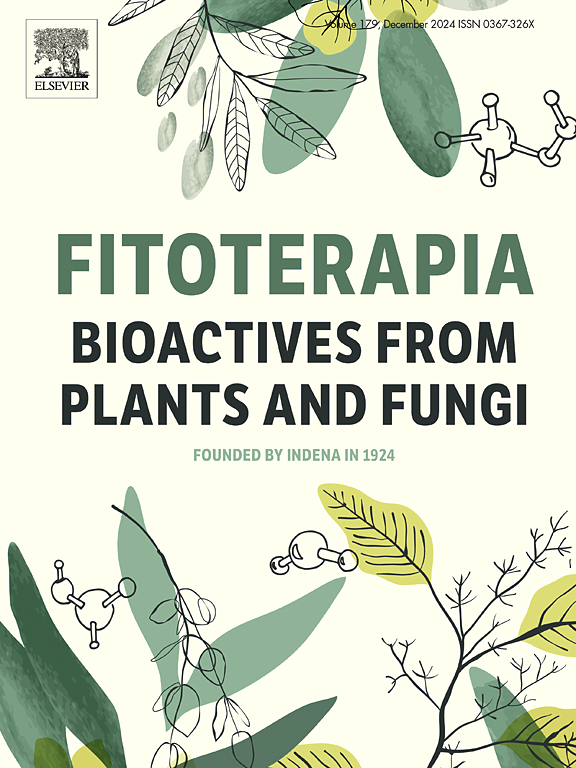In vitro activity, structural characterization and modulation of DSS-induced intestinal inflammation in zebrafish by Pseudognaphalium affine (D.Don) Anderb polysaccharides
IF 2.5
3区 医学
Q3 CHEMISTRY, MEDICINAL
引用次数: 0
Abstract
A wide range of medicinal values and good health effects characterizes pseudognaphalium affine (D.Don) Anderb. PHP, as a polysaccharide fraction, was isolated and purified from Pseudognaphalium affine (D.Don) Anderb. This study evaluated PHP's structural characteristics in terms of its molecular weight, functional groups, and monosaccharide content. After dextrose sodium sulfate (DSS)-induced ulcerative colitis (UC) in zebrafish, the anti-inflammatory efficacy of PHP against macrophage RAW264.7 in vitro was assessed, as well as its impact on pathological alterations, oxidative stress state, and expression of inflammation-related genes. According to the data, PHP is a neutral heteropolysaccharide comprising nine monosaccharides. It markedly decreased the secretion of pro-inflammatory cytokines (TNF-α, IL-6) and altered the oxidative stress status of RAW264.7 cells. It increased oxidative stress markers and decreased the clinical signs of zebrafish colitis (CAT, SOD). PHP concurrently controlled the expression of genes linked to the NF-κB and MyD88 signaling pathways. Overall, PHP showed striking alleviation of ulcerative colitis in zebrafish, which can effectively facilitate the development of adjuvants and medicinal and edible plants to treat ulcerative colitis.
伪gnaphalium affine (d.d an) Anderb多糖对dss诱导的斑马鱼肠道炎症的体外活性、结构表征和调节作用
仿射假钠具有广泛的药用价值和良好的保健作用。从仿射假gnaphalium affine (d.p don) Anderb中分离纯化了多糖部分PHP。本研究从分子量、官能团和单糖含量等方面评价了PHP的结构特征。在葡萄糖硫酸钠(DSS)诱导的斑马鱼溃疡性结肠炎(UC)后,体外评估PHP对巨噬细胞RAW264.7的抗炎作用,以及其对病理改变、氧化应激状态和炎症相关基因表达的影响。根据数据,PHP是一种由9个单糖组成的中性杂多糖。显著降低促炎因子(TNF-α、IL-6)的分泌,改变RAW264.7细胞的氧化应激状态。它增加了氧化应激标志物,降低了斑马鱼结肠炎的临床症状(CAT, SOD)。PHP同时控制NF-κB和MyD88信号通路相关基因的表达。总之,PHP对斑马鱼溃疡性结肠炎有显著的缓解作用,这可以有效促进佐剂和治疗溃疡性结肠炎的药用和食用植物的开发。
本文章由计算机程序翻译,如有差异,请以英文原文为准。
求助全文
约1分钟内获得全文
求助全文
来源期刊

Fitoterapia
医学-药学
CiteScore
5.80
自引率
2.90%
发文量
198
审稿时长
1.5 months
期刊介绍:
Fitoterapia is a Journal dedicated to medicinal plants and to bioactive natural products of plant origin. It publishes original contributions in seven major areas:
1. Characterization of active ingredients of medicinal plants
2. Development of standardization method for bioactive plant extracts and natural products
3. Identification of bioactivity in plant extracts
4. Identification of targets and mechanism of activity of plant extracts
5. Production and genomic characterization of medicinal plants biomass
6. Chemistry and biochemistry of bioactive natural products of plant origin
7. Critical reviews of the historical, clinical and legal status of medicinal plants, and accounts on topical issues.
 求助内容:
求助内容: 应助结果提醒方式:
应助结果提醒方式:


